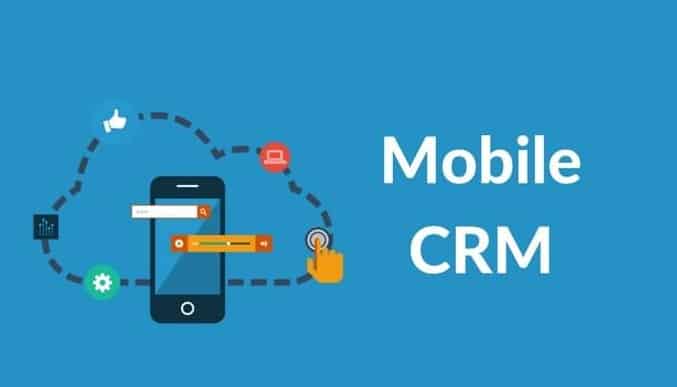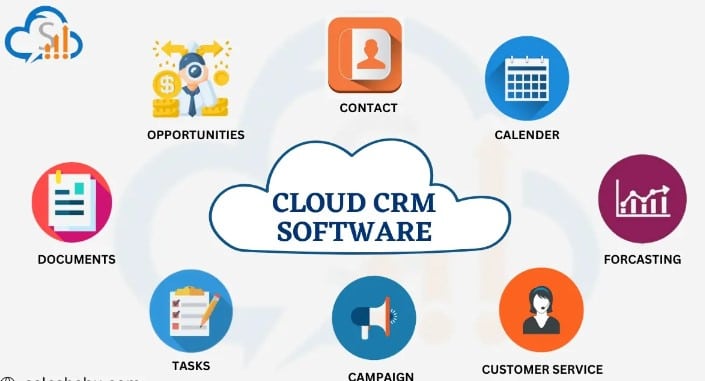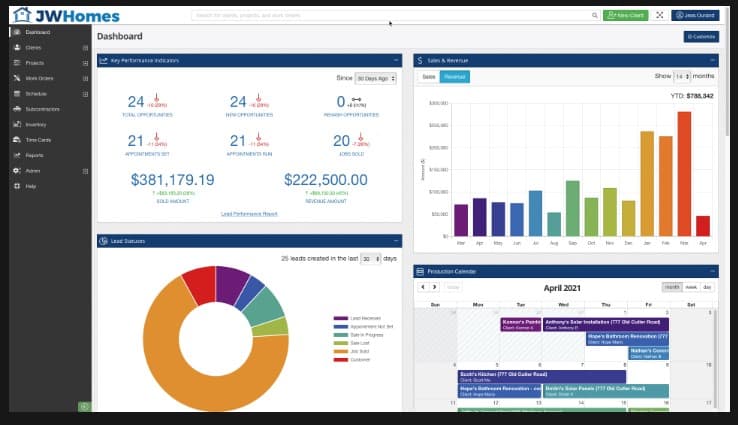In today’s fast-paced business world, staying connected and organized is crucial for success. That’s where Mobile CRM (Customer Relationship Management) software comes into play. With the increasing use of mobile devices, having a CRM software that is accessible on the go has become a necessity for businesses of all sizes. In this article, we will explore the benefits and advantages of using Mobile CRM software and how it can enhance your business operations.
Mobile CRM Software: Benefits and Advantages Explained
Streamlined Communication and Collaboration
One of the key benefits of Mobile CRM software is its ability to streamline communication and collaboration within your organization. With Mobile CRM, you can access important customer data, update records, and communicate with team members in real-time, regardless of your location. This seamless connectivity allows for better coordination, improved decision-making, and enhanced customer service.

Increased Productivity and Efficiency
Mobile CRM software empowers your sales and service teams to work more efficiently. By providing instant access to customer information, order history, and sales data, Mobile CRM eliminates the need for manual record-keeping and time-consuming administrative tasks. This enables your team to focus on what matters most: building relationships, closing deals, and providing exceptional customer service.
Enhanced Customer Service
Delivering exceptional customer service is crucial for retaining existing customers and attracting new ones. Mobile CRM software enables your team to access customer data on the go, empowering them to provide personalized and timely support. Whether it’s resolving a customer issue, answering a query, or offering tailored recommendations, Mobile CRM equips your team with the tools they need to deliver top-notch service, fostering long-term customer loyalty.
Improved Sales Performance
Mobile CRM software plays a vital role in boosting sales performance. By having access to real-time sales data, sales representatives can track leads, manage pipelines, and close deals more effectively. They can also access customer preferences and purchase history, allowing them to upsell or cross-sell products and services. With Mobile CRM, your sales team can stay organized, prioritize tasks, and make data-driven decisions, ultimately driving revenue growth.
Data Security and Backup
Data security is a top concern for businesses in the digital age. Mobile CRM software ensures that your valuable customer data is stored securely in the cloud, reducing the risk of data loss or unauthorized access. Additionally, most Mobile CRM platforms offer automated data backups, ensuring that your information is safe even in the event of a device failure or data breach.
Scalability and Customizability
Mobile CRM software provides scalability and customizability to meet the unique needs of your business. As your business grows, you can easily add new users, modify workflows, and adapt the software to accommodate changing requirements. This flexibility ensures that your CRM solution can grow with your business and continue to provide value in the long run.
FAQs (Frequently Asked Questions)
- What is Mobile CRM software? Mobile CRM software refers to applications or platforms that enable businesses to manage customer relationships, sales processes, and customer service activities through mobile devices such as smartphones and tablets.
- Why is Mobile CRM software important for businesses? Mobile CRM software is important for businesses as it allows teams to access customer data, update records, and communicate in real-time, regardless of their location. This enhances productivity, improves customer service, and drives sales performance.
- Can Mobile CRM software be accessed offline? Yes, many Mobile CRM software solutions offer offline capabilities, allowing users to access and update data even when they are not connected to the internet.
- Is Mobile CRM software suitable for small businesses? Absolutely! Mobile CRM software is highly beneficial for small businesses. It helps them streamline their operations, enhance customer service, and improve sales performance. With affordable and user-friendly options available in the market, small businesses can leverage Mobile CRM software to compete effectively.
- Can Mobile CRM software integrate with other business tools? Yes, most Mobile CRM software solutions offer integrations with popular business tools such as email marketing platforms, project management software, and accounting systems. These integrations allow for seamless data flow and collaboration across different departments, enhancing overall efficiency.
- Is Mobile CRM software secure for storing customer data? Mobile CRM software prioritizes data security and offers robust measures to protect customer information. These solutions employ encryption, secure cloud storage, and access controls to ensure the confidentiality and integrity of your data. It’s important to choose a reputable Mobile CRM provider that adheres to industry-standard security practices.
- Can Mobile CRM software be accessed on multiple devices? Yes, Mobile CRM software is designed to be accessed on multiple devices such as smartphones, tablets, and laptops. Whether you’re in the office, on the field, or traveling, you can conveniently access your CRM data and perform tasks from any device with an internet connection.
- Does Mobile CRM software offer analytics and reporting features? Yes, most Mobile CRM software solutions come with built-in analytics and reporting features. These tools allow you to gain valuable insights into your sales performance, customer behavior, and overall business metrics. By analyzing the data generated by your CRM software, you can make informed decisions and optimize your strategies.
- Can Mobile CRM software be customized to match our business processes? Absolutely! Mobile CRM software offers customization options to align with your unique business processes and requirements. You can configure workflows, fields, and user permissions to match your specific needs. This flexibility ensures that the CRM software adapts to your business, rather than the other way around.
- Is training required to use Mobile CRM software effectively? While Mobile CRM software is designed to be user-friendly, some training may be beneficial to ensure effective utilization of all features. Many CRM providers offer comprehensive training materials, tutorials, and support to help you and your team get up to speed quickly and make the most out of the software.
- Are there different pricing options available for Mobile CRM software? Yes, Mobile CRM software is available in various pricing models to cater to different business sizes and budgets. Some providers offer subscription-based plans with tiered pricing, while others offer customizable packages based on your specific needs. It’s important to evaluate the features, scalability, and support offered by different providers before making a decision.
- Can Mobile CRM software help in managing customer relationships beyond sales? Absolutely! While Mobile CRM software is widely known for its benefits in sales and customer service, it can also assist in managing customer relationships beyond the sales cycle. By maintaining detailed customer profiles, tracking interactions, and analyzing data, you can nurture relationships, personalize marketing efforts, and provide ongoing support to enhance customer satisfaction.
By addressing these frequently asked questions, we hope to have provided you with a comprehensive understanding of Mobile CRM software and its benefits and advantages. If you have any further queries, feel free to reach out and explore the possibilities of leveraging Mobile CRM software for your business.
Conclusion
Mobile CRM software is a game-changer for businesses, providing numerous benefits and advantages. From streamlined communication and increased productivity to enhanced customer service and improved sales performance, Mobile CRM empowers organizations to stay competitive in today’s mobile-driven world. By leveraging the power of Mobile CRM software, businesses can optimize their operations, strengthen customer relationships, and drive sustainable growth.
So, if you want to take your business to the next level, consider adopting Mobile CRM software and unlock the vast potential it offers.

